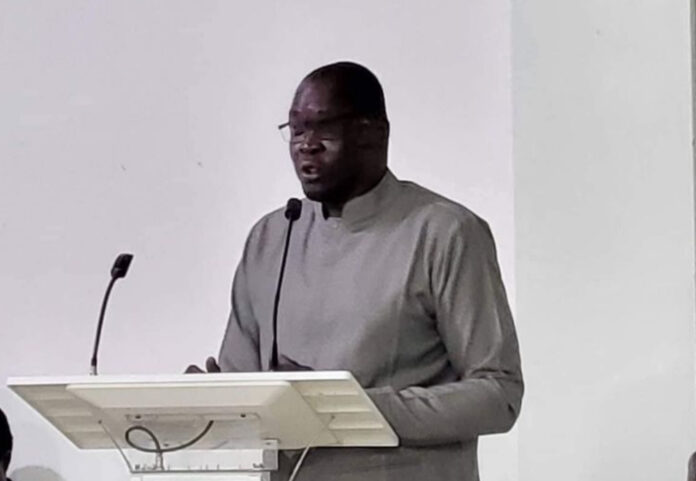Author: Kuol Kum, PhD student at MUBS (Opinion)
South Sudan, as one of the youngest nations in the world, faces numerous challenges that have hindered its economic transformation. The nation struggles with low productivity, a lack of skilled labor, and weak infrastructure—all of which leave it vulnerable within the regional economic bloc.
As lawmakers and policymakers push for deeper regional integration, we must reconsider the implications of such a move, which, in many ways, has left South Sudan economically exposed.
In theory, regional economic integration fosters cooperation facilitates trade, and brings about the free movement of goods, services, and labor. However, in practice, South Sudan’s weak industrial base and underdeveloped workforce make it difficult for the nation to compete within such a system.
Neighboring countries, with decades of experience in skill development and more mature industries, are benefiting disproportionately from the integration, leaving South Sudan to grapple with the consequences.
The Vulnerability of South Sudan’s Economy
South Sudan’s economy is largely dependent on oil revenues, along with non-oil revenue streams such as visa fees, taxes on imported goods, and work permits. Regional integration has significantly eroded these revenue sources, particularly through the removal of trade barriers and the influx of foreign workers.
Currently, 80% of the workforce in the country is composed of foreign nationals from regional states, while 90% of goods are imported from the same regional neighbors. This economic dependence on foreign labor and imports has weakened South Sudan’s ability to generate domestic income, further exacerbated by the ongoing conflict in Sudan, which has reduced oil production.
Clip 1: The removal of barriers has left South Sudan relying solely on dwindling oil revenues. The consequences are clear: our nation has become increasingly vulnerable, with little recourse to strengthen our economy under the current regional framework.
Furthermore, the government has no reliable tracking system to monitor South Sudanese working abroad, meaning their contributions to the domestic economy remain largely untapped. This lack of infrastructure reflects the broader issue of incompetence in managing economic opportunities that could benefit the nation.
Regional Integration’s Benefits to Neighboring States
While South Sudan has struggled to reap the benefits of regional integration, its neighboring states have flourished. The East African Community (EAC) has seen remarkable growth in intra-regional trade, with exports worth USD 14 billion, 22.4% of which are directly attributed to trade within the EAC.
Member states such as Uganda have recorded a 6.5% annual economic growth rate, with trade and investment increasing exponentially since the implementation of tariff reductions and the harmonization of trade policies.
Clip 2: Uganda’s exports increased by 26% between 2001 and 2009, while its imports doubled. These economic gains reflect the success of integration for nations that were better prepared to take advantage of the opportunities it offered.
The EAC’s objectives of deepening political, economic, social, and cultural integration have indeed elevated the quality of life for many within the bloc. However, for South Sudan, these benefits remain largely out of reach due to the country’s underdeveloped capacity to participate meaningfully in regional trade and labor markets.
The Need for a Reassessment of Regional Economic Integration
While regional economic integration may work for countries with similar levels of development, South Sudan must carefully reconsider its participation.
The country’s labor market, industrial capacity, and production leverage are far behind its neighbors. Integrating into a regional system without addressing these gaps leaves South Sudan at a disadvantage, unable to compete on an equal footing.
Clip 3: The political and economic implications of this disparity are significant. South Sudanese workers are struggling to find employment within their own country, while foreign workers dominate the job market. This political oversight requires urgent attention from lawmakers.
Rather than pushing further into regional integration, South Sudan should focus on internal development first. Investments in technical skills, agriculture, industrialization, and technology are essential to strengthen the economy and create a more resilient, self-sufficient nation.
Lawmakers must prioritize building the nation’s infrastructure, enhancing productivity, and addressing challenges such as insecurity and weak institutions that hamper growth.
Moving Forward: A Path to Sustainable Development
The government must take a step back and focus on creating an economy that can withstand the pressures of regional integration. Agricultural development, the mining sector, and the services industry should be key areas of focus, to diversify the nation’s export base.
Regional integration, if managed properly, could eventually offer significant benefits, but only once South Sudan has developed the internal capacity to compete effectively.
Clip 4: Lawmakers need to ensure that regionalism is inclusive, and policies must be implemented to manage the social, environmental, and governance risks of such integration. Without these safeguards, South Sudan will continue to suffer from the negative impacts of regional economic cooperation.
In conclusion, South Sudan’s current participation in regional economic integration has left it vulnerable and disadvantaged. Lawmakers must reassess the nation’s approach, focusing on domestic development before attempting to compete on the regional stage.
By improving physical infrastructure, simplifying taxation, and strengthening trade-related institutions, South Sudan can build a foundation for long-term growth that benefits its citizens while laying the groundwork for future success in regional and global markets.
About the Author: Kuol Kum, Executive Director of the Healthcare Foundation Organization in South Sudan and Ph.D. student in Trade Policy and Public Sector Development at Makerere University. He has a Bachelor’s in Human Resources Management from the International University of East Africa, a master’s in human resource management from the International University of East Africa, and a master’s in public policy from the University of Juba.





